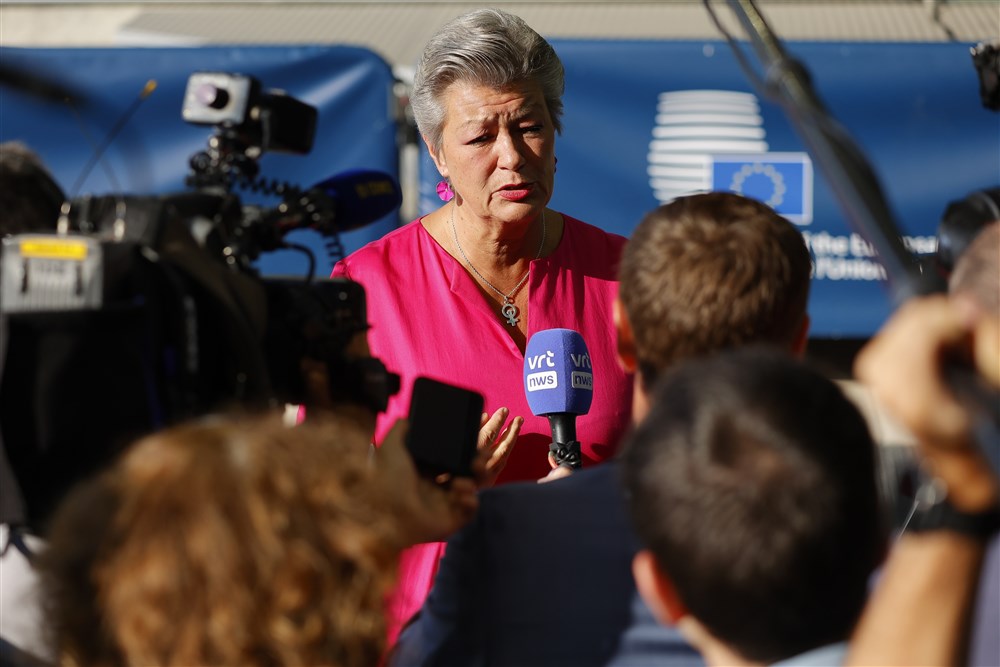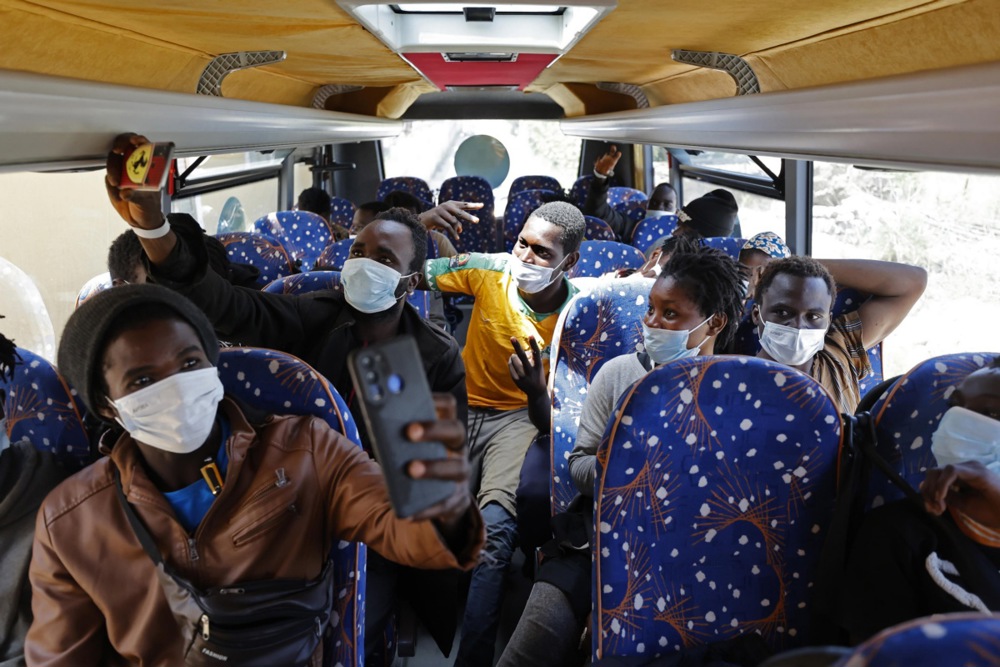European Union Members States have agreed on how to handle illegal migrants and asylum seekers. They hope their agreement will become law before the European Parliament elections in June 2024.
Representatives of the 27 European Union countries on October 4 hashed out the basis of future negotiations between the EU Presidency and the European Parliament.
The proposal establishes a framework that would allow Member States to address situations regarding asylum and migration crises by adjusting certain rules on, for example, the registration of asylum applications and the asylum border procedure.
Affected countries would also be able to request solidarity and support measures from the EU and its Member States.
Registration of applications for international protection may be completed no later than four weeks after they are made, easing the burden on already strained national administrations.
A Member State facing a crisis may request solidarity contributions from other EU countries. Such contributions can include the relocation of asylum seekers or beneficiaries of international protection; the taking over of the responsibility to examine asylum claims and financial contributions; or alternative solidarity measures.
Exceptional measures and solidarity assistance will require Council authorisation in accordance with the principles of necessity and proportionality, as well as full conformity with the fundamental rights of third-country nationals and stateless people, it was agreed.
The situation on the Italian island of Lampedusa, where thousands of African migrants have been reaching the shores of Europe for weeks now, pressured countries to act. Momentum grew after Italy and Germany seemingly made amends after a conflict over NGOs that transport migrants to Italy.
Italian Prime Minister Giorgia Meloni lobbied hard, speaking with France and the other so-called ‘Med 9’ countries. She succeeded in convincing Germany to drop its amendment on NGOs. Berlin had approved financial support for NGOs that bring migrants to Europe.
The dropping of the German amendment is seen as a big win by the Italian Government.
The Spanish EU Presidency now has something to show at the summit on October 5-6 in Granada to chart the course for Europe’s future.
“Today we have achieved a huge step forward on a critical issue for the future of the EU,” said Fernando Grande-Marlaska Gómez, acting Spanish minister for home affairs.
“With today’s agreement, we are now in a better position to reach an agreement on the entire asylum and Migration Pact with the European Parliament by the end of this semester.”
Amnesty International is unhappy with the situation and called the agreement “dangerous and disproportionate”.
In a statement the NGO said: “This agreement risks leaving people stranded, detained or destitute along Europe’s borders and will do nothing to improve the protection of asylum seekers in the EU.
“Denying people seeking asylum their rights is dangerous, and a disproportionate response to situations which countries could perfectly well deal with under existing rules.”
The Council of the #EU just agreed a 'Crisis Regulation' which seeks to change the rules on how EU countries respond to sudden increases in people arriving at borders
They would lower #asylum standards which our research shows leads to more rights abuseshttps://t.co/dhq6CtiKTF
— Amnesty EU (@AmnestyEU) October 4, 2023
Meloni also addressed the rejection of European financial aid by Tunisian President Kais Saied. She said she believed Saied’s move addressed public opinion at home and “certainly with an assertive tone”.
Meloni said his position did not differ much from what Italy also asserts, namely “that the relationship with African countries must change because we have had a paternalistic approach with these countries, somewhat as if we felt superior, which is not the right way to handle these matters.”
The EU nations and Parliament will have to negotiate the final pieces of the legislation in extended discussions.
Only a qualified majority (QMV) among Member States is required for agreement. That is achieved when two conditions are met concurrently: 55 per cent of Member States vote in favour, which in practice equates to around 15 out of 27. The proposal also needs support from EU countries representing at least 65 per cent of the total population of the bloc.
That means nations currently opposing the proposal, such as Poland, Hungary, Austria and the Czech Republic cannot block the Migration Pact on their own.
Those against the proposals were vocal in their criticism at the plenary in Strasbourg on October 4. The main point, brought forward by the right-wing parties both supporting and opposing the pact, was the external border control issue.
From the European People’s Party (EPP) President Manfred Weber to Identity and Democracy (ID) Group representative Tom Vandendriessche, who spoke of the conscious replacement of European peoples and colonisation by migrants, those on the Right want the enforcement of external border control to be a minimum requirement.
I presented our position on the "migration pact" supported by Tusk's political colleagues from Germany in the European Parliament. It's quite simple and clear: Poland will never agree to accept illegal migrants, to relocate those illegal migrants, or to pay any absurd penalties… pic.twitter.com/FxuxTvdsSj
— Beata Szydło (@BeataSzydlo) October 4, 2023





